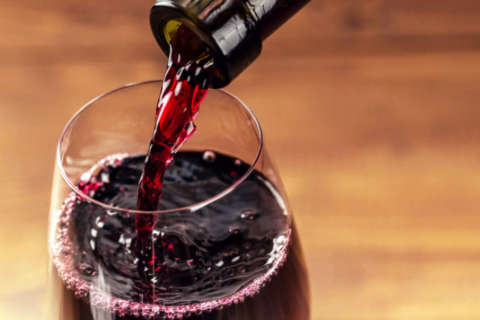WASHINGTON — The holiday spirit not only brings families together, but it also brings out the spirits themselves — i.e., alcohol.
And with young eyes watching, it’s important for parents to recognize these festive moments that shape their kids’ developing attitudes toward drinking.
It’s also important to be prepared for an uncomfortable question: “Can I have some, too?”
For some parents, there might be a reluctant “yes.” But there are two very big problems with that, said parenting blogger Leslie Morgan Steiner.
The first: alcohol’s health impact on young brains. Teenage brain research shows that underage drinking can permanently damage both the frontal lobe and hippocampus — as well as impair judgment and lead to other risky behaviors.
“It’s critical for development to delay the initial alcohol use as long as possible,” Steiner said. Delaying that first drink allows both social and brain development to mature as much as possible before an adult beverage interferes with this process, she said.
Legal risk is the other problem. Parents who choose to say “yes” obviously put themselves at great risk of both civil and criminal liability.
Setting the right example
And while just saying “no” as other adults partake is the right call, it’s important also to use a holiday gathering as a teachable moment for your kids, regardless of age.
“Our job as parents is to give them information about how to drink responsibly [and] model responsible drinking — long before our kids take a first sip of alcohol,” said Steiner.
“If you can talk to your kids when they’re 7, 8, 9 about this, it’s going to be a lot easier when they’re 15, 16, 17 and the stakes are a lot higher,” she said.
So limit yourself to two drinks, don’t glorify your own drinking experiences, and don’t “cover it up” if they see someone who is obviously drunk.
“It’s smart to just tackle that head-on without being overly judgmental or snarky about it and say, ‘Look, that’s why I don’t want you drinking,’” said Steiner, who prefers to package advice into short, easily deliverable soundbites such as:
- “I trust you, but I don’t necessarily trust alcohol and how it makes people act.”
- “The family would never be the same if something terrible happened to you because of alcohol.”
“It’s a pretty grim,” she said. “But trust me, it gets kids’ attention, and they’ll remember it when you’re not there and they’re trying to stand up to peer pressure.”
Holiday festivities also present a chance, she said, to discuss the additional risks alcohol presents in the form of drunken driving and sexual assault.
“It’s a great opportunity to just kind of jump in with both feet and say, ‘You know, since you brought it up and you asked for this sip, let me talk to you about some of the hard realities here,’” Steiner said.
The conversation evolves
One group that has promoted an ongoing discussion of underage drinking’s impact is the nonprofit Foundation for Advancing Alcohol Responsibility. Their approach is one of an ongoing conversation that begins early and evolves as kids enter adulthood.
For instance, the group’s “Ask Listen Learn” program emphasizes the health risks to younger kids, said Ralph Blackman, the foundation’s president and CEO. As kids enter high school, he said, parents might emphasize additional messages about the safety risks of drunken driving (and the importance of phoning home for a ride to avoid dangerous situations).
As teens enter college, and they’re out on their own, it’s about emphasizing the legal risks of underage drinking.
“Hopefully, again, these are not conversations that are beginning in their 20s, but they’re conversations that are beginning before when they’re in elementary school,” Blackman said.
Don’t exclude them
Such talk of health, safety, legalities and the like only go so far with kids who understandably don’t want to be left out. And as the family gathers for a holiday toast, it’s important to accompany any conversations with a reminder that they are family, too.
“From a parent’s perspective, you want your kids to feel like they’re part of the celebration,” said Leticia Barr, a D.C.-based parenting expert who’s also a member of the foundation’s advisory board.
Ginger ale, sparkling fruit juice or a “mocktail,” served in a fancy glass, can help emphasize that reminder. Barr cited her own experience having Shirley Temples with her grandparents when they went out to dinner.
“It wasn’t something I usually had at home,” Barr said. “It was something special for when we went out. As a kid, that made me feel really great and part of a celebration.”
It’s one example of how parents can remember what it feels like to be a kid — and that’s important, Steiner said.
“Know that your kids have a skewed view of [drinking],” she said, “and part of our job as parents is to normalize this and to assure them that not everybody is drinking.”







